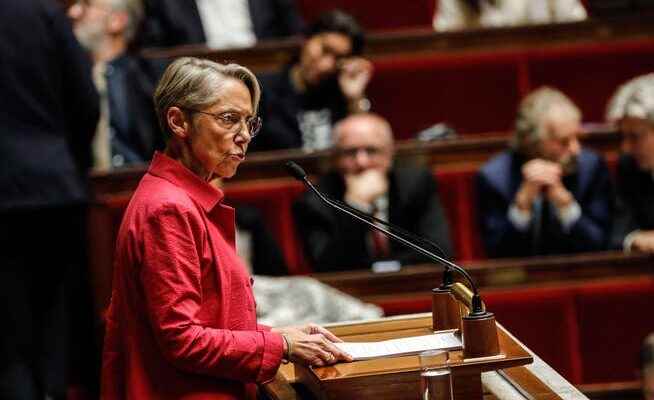The French government does not have a majority of its own and therefore uses a questionable tool to get its laws through parliament. The only way out is to involve the opposition in legislation.
Because Elisabeth Borne declared her government’s budget proposal approved without a vote, the prime minister had to face a vote of no confidence from the opposition on October 24.
In a democracy, the right to pass the budget is one of the most important powers of parliament. “No taxation without representation” has been a central principle of parliamentary democracy since the 18th century. If the people do not have a say in the use of tax funds, this calls into question the rule of the people. In this respect, it is worrying that in France the government of Élisabeth Borne wants to adopt the budget for the coming year without the consent of the Assemblée Nationale.
In the budget debate, the Prime Minister use Article 49.3 four times within two weeks made, which allows it to declare a law passed without a vote of Parliament. The reason is that President Emmanuel Macron’s camp has not had its own majority since the parliamentary elections in June and is therefore dependent on the cooperation of the opposition to pass the budget.
The opposition parties turned down the Prime Minister’s offer to help her plan the budget and declined to vote for the government’s budget. In the end, Borne had no choice but to make use of Article 49.3 if she did not wish to be incapacitated. Even before all amendments had been discussed, Borne declared the debate in parliament over and the government’s budget draft approved.
The opposition is frustrated but impotent
The use of the article is by no means unprecedented in France – the left-wing government of Michel Rocard used it 28 times at the end of the 1980s to get laws through parliament. But that doesn’t change the fact that it’s a questionable instrument that puts a muzzle on the people’s representatives. The only option left to MPs under Article 49.3 is to table a motion of no confidence in the government.
The right-wing Rassemblement national as well as the left-wing party alliance Nupes immediately made use of it. But although Le Pen MPs voted in favor of the motion, to the dismay of left-wingers, it fell short of the majority needed to overthrow the government because the conservative Républicains refused to participate. Since this was clear from the start, the no-confidence votes seemed like a tactical maneuver with no prospect of success.
Socialists, Communists and Greens are suitably skeptical that it makes sense to table a motion of no confidence every time the government uses Article 49.3 in the budget debate. It is considered certain that Borne will continue to do so in the future as long as the current blockade in Parliament lasts. This is a problem for President Macron, who actually promised greater popular participation after his re-election.
New elections offer no way out
In order to persuade the opposition to cooperate, Macron has repeatedly threatened to dissolve parliament and hold new elections. However, his party has just as little interest in new elections as the Left or the Conservatives. Macron’s threat to dissolve parliament is pure rhetoric. This situation is not an advantage for either Macron or the opposition. Not only does Parliament appear impotent, the government also appears weak if it can only pass laws with Article 49.3.
No responsible party can have an interest in this situation continuing. The moderate opposition should therefore shake hands with the government and offer its cooperation on a case-by-case basis. The Républicains in particular act inconsistently if they don’t support the budget but also don’t want to overthrow the government. Conversely, Borne should seriously seek dialogue with the Greens, Socialists and Conservatives and involve them in the drafting of future laws. For Macron, this is a good chance to prove he’s serious about uniting left and right.
